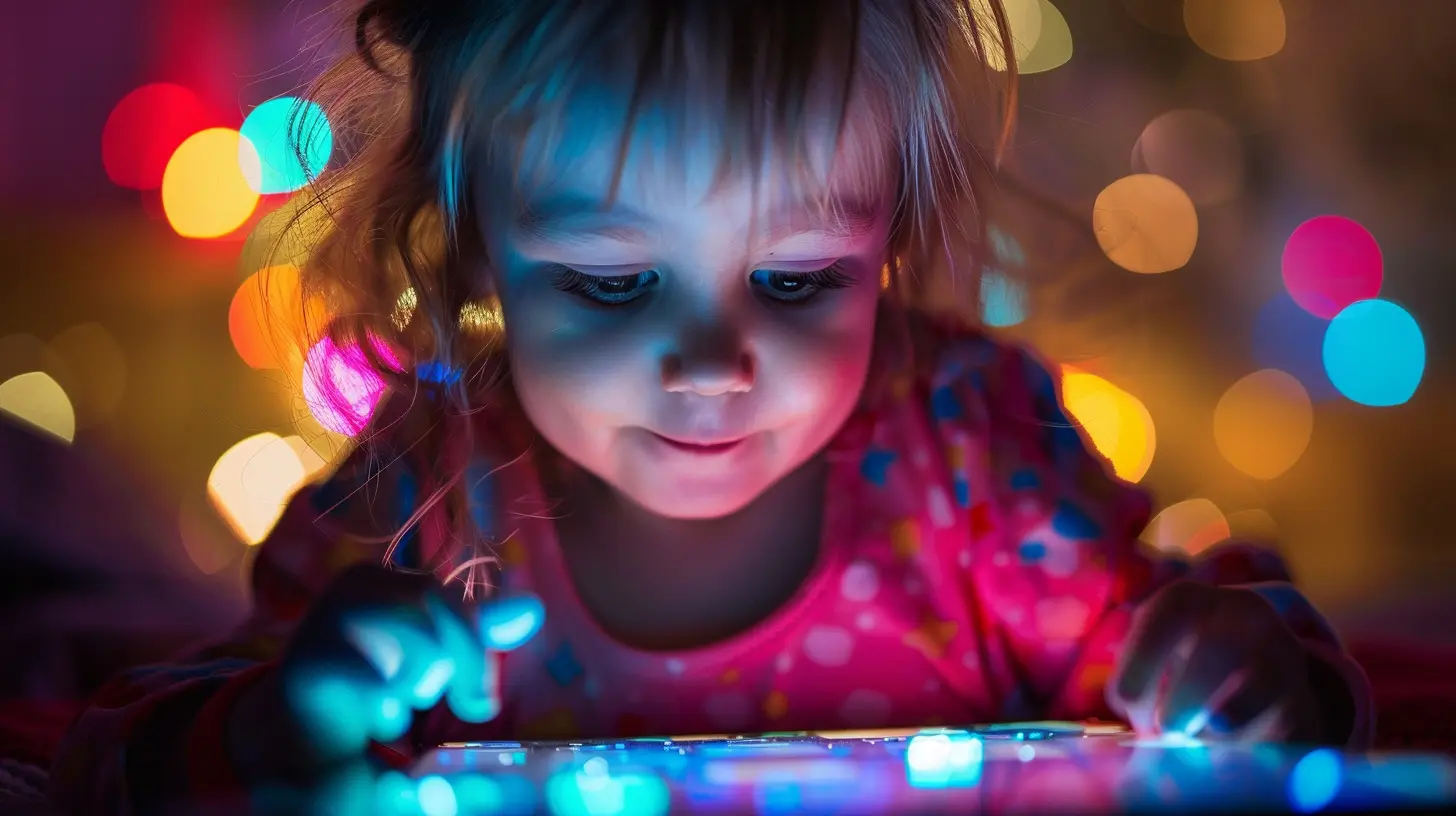Social Media for Kids: When Is It Appropriate to Start?
7 June 2025
Let’s face it—our kids are growing up in a world that’s hooked on screens, swipes, and selfies. Social media has become second nature, a way people connect, share, and express themselves. But when your child starts asking, "Can I have Instagram?" or "Why can't I be on TikTok like my friends?", it throws you into a whirlwind of emotions and questions. You want to trust them, but you also want to protect them. You're not alone—this is one of the trickiest parts of modern parenting.
So, where do we draw the line? How do we know when the time is right? Let’s dive into this modern parenting dilemma and figure it out together.
The Digital Childhood: A New Normal
Gone are the days when childhood meant riding bikes, collecting trading cards, or watching Saturday morning cartoons. Now, kids are watching YouTube shorts, chatting on Roblox, and following influencers before they even understand what "influence" actually means.Social media is deeply embedded into our culture. For better or worse, it’s how people share milestones, communicate thoughts, and even consume news. And guess what? Our children are watching and learning. The moment they see you scrolling through Instagram or cracking up at a TikTok, they see how powerful and fun social media can be. It’s no surprise they’re curious.
But just because it’s common doesn’t mean it’s right for every age. So let's talk about what factors really matter.
Understanding the Big Picture: Why Kids Want Social Media
Before we get into the "when," let's talk about the "why." Why do kids want to be on social media in the first place?- Peer Influence: This is probably the biggest one. If their classmates are on Snapchat or Discord, your child doesn’t want to feel left out.
- Creativity and Expression: Platforms like TikTok and Instagram offer fun ways to showcase creativity—dancing, drawing, storytelling.
- Belonging and Identity: Social media can sometimes help kids feel connected, especially during tween and early teen years when they're figuring out who they are.
Honestly, we get it. They’re not just being rebellious—they want to fit in and feel seen. But wanting to be on social media and being ready for it are two very different things.
The Official Age Limit... And the Reality
Most major platforms (Facebook, Instagram, TikTok, etc.) require users to be at least 13 years old. This age limit isn’t arbitrary—it’s based on the Children’s Online Privacy Protection Act (COPPA), which limits how much personal information companies can collect from kids under 13.But here’s the kicker: many kids are using social media well before that age by lying about their birthdate. Some do it with their parents’ knowledge; others just find workarounds.
So while these age restrictions provide some guidance, they’re not foolproof. It’s ultimately up to us as parents to decide whether our child is emotionally and mentally ready.
Signs Your Child May Be Ready for Social Media
No two kids are the same. Some 12-year-olds may be as mature as 16-year-olds, while some 15-year-olds still need more time to develop emotional intelligence. So how do we gauge readiness?Here are a few signs that your child may be ready to handle social media responsibly:
1. They Show Good Judgment
If your child already demonstrates responsible behavior offline—like keeping secrets, owning up to mistakes, and thinking before speaking—they might be better equipped to handle the online world.2. They Understand Privacy
Can they tell the difference between oversharing and appropriate storytelling? Do they know not to post personal details like their address or school name online?3. They Can Handle Peer Pressure
Social media can be brutal. If your child can confidently say "no" to trends or behaviors they don't agree with offline, that's a great indication of online resilience.4. They Communicate Openly With You
If your kid feels comfortable talking to you, especially about uncomfortable things, this open line of communication will be vital for their online safety.Potential Dangers You Shouldn’t Ignore
Even if your child seems ready, it’s important to be aware of what they’re stepping into. Social media is fun, sure—but it comes with risks. Here are a few worth mentioning:- Cyberbullying: This isn't just a buzzword. Kids can be cruel online, and the hurtful messages don’t disappear overnight.
- Body Image Issues: Platforms flooded with filters and unrealistic beauty standards can make kids feel they don’t measure up.
- Addiction and Screen Time: Once they’re in, it’s not easy to pull them away. The dopamine hit from likes, views, and shares can be addictive.
- Exposure to Inappropriate Content: From swearing to violence to adult themes, even kid-friendly content can sometimes cross boundaries.
So yes, the risks are real. But don’t panic—because the key lies in being prepared and proactive.
Setting Ground Rules: Your Secret Weapon
Giving your child access to social media shouldn't be a free-for-all. It's like giving them the keys to a car—you wouldn't do it without some rules, right?Here are some ground rules you might want to implement:
1. Limit Screen Time
Start small. Maybe 30 minutes a day to begin with and gradually adjust as you see how they handle it.2. Have Access to Their Accounts
At least in the beginning, insist on having login access or using parental control apps. Transparency builds trust.3. No Phones in Bedrooms at Night
This helps prevent late-night scrolling and ensures they’re getting enough sleep.4. Encourage Real-Life Friendships
Social media is no replacement for real, face-to-face interaction. Encourage them to hang out with friends offline, too.5. Talk. Talk. Talk.
Create a culture of regular conversations. What did they see today? How did it make them feel? Normalize talking about digital life the same way you talk about school or sports.What Platforms Are Safer for Younger Kids?
If you're not quite ready to hand over Instagram, there are some platforms designed with younger users in mind:- YouTube Kids: A toned-down version of YouTube with more controls
- Messenger Kids: Controlled by parents, with limited interaction options
- GoBubble: A social media platform built specifically for kids and schools
These aren’t perfect, but they are a decent "starter pack" for introducing social media in a safer, more controlled environment.
How to Be a Digital Role Model
Your kids watch you more than you realize. If you’re glued to your screen, scrolling endlessly, replying to emails at the dinner table, or commenting on Facebook fights, they’ll pick up on it.It’s important to:
- Model healthy screen habits.
- Take digital detoxes together as a family.
- Be mindful of what you post about your kids—yes, they have digital boundaries too.
When It Might Be Too Soon
Some warning signs that your child may not be ready just yet:- They’re secretive about their device use.
- They show signs of anxiety or emotional instability.
- They lack impulse control or often make poor decisions.
- They’re not mature enough to understand the permanence of online content.
If your gut says "not yet," listen to it. There’s no rush. Childhood isn’t a race, and social media will always be there when they're ready.
Let’s Talk Milestones, Not Just Age
Here’s the thing—maturity isn’t tied to a number. Instead of asking, “Is my kid old enough?”, try asking, “Is my kid ready for the responsibility?”Maybe it's after they've shown they can keep up with chores, handle homework without being nagged, or resolve peer conflicts on their own. Look for real-life cues that they’re developing the skills they’ll need online.
Because at the end of the day, social media is a tool. And just like any tool, from a bike to a stove to a smartphone—it’s all about learning how to use it safely and wisely.
Final Thoughts: Trust, Patience, and Ongoing Support
Letting your child into the world of social media feels a bit like teaching them to swim. You want to hold them up, but eventually, you have to let go. The key is not to throw them into the deep end but to stay nearby, guiding them as they learn to navigate the digital currents.Be curious about what they're doing. Be available when they mess up. Be firm when necessary, but don’t forget to be compassionate.
Keep the lines of communication open, build trust, and make social media a family topic—not a forbidden one.
Because when it comes to parenting in the digital age, we’re all learning together. And that’s okay.
all images in this post were generated using AI tools
Category:
Tech And KidsAuthor:

Steven McLain
Discussion
rate this article
3 comments
Patience Lynch
Navigating social media for kids requires a balanced approach. It's essential to consider each child's maturity and emotional readiness. Open dialogues about online safety, self-esteem, and digital footprints can empower children to use social media responsibly and positively, fostering healthy habits from the start.
June 18, 2025 at 4:54 AM

Steven McLain
I completely agree! Tailoring social media exposure to each child's maturity is crucial, and fostering open conversations about online safety and self-esteem can set them up for positive experiences.
Journey McFee
Navigating the social media landscape for kids can be a fun adventure! Remember, every child is unique, and it's all about finding the right balance. Stay involved, set clear guidelines, and let them explore safely. You've got this—happy parenting!
June 8, 2025 at 3:52 PM

Steven McLain
Thank you! I completely agree—balancing safety and exploration is key as kids venture into social media. Your support means a lot!
Kael Taylor
Great insights! It’s so important to balance safety and connection in our kids' online lives.
June 8, 2025 at 3:04 AM

Steven McLain
Thank you! Finding that balance is crucial for fostering healthy online habits in children.



